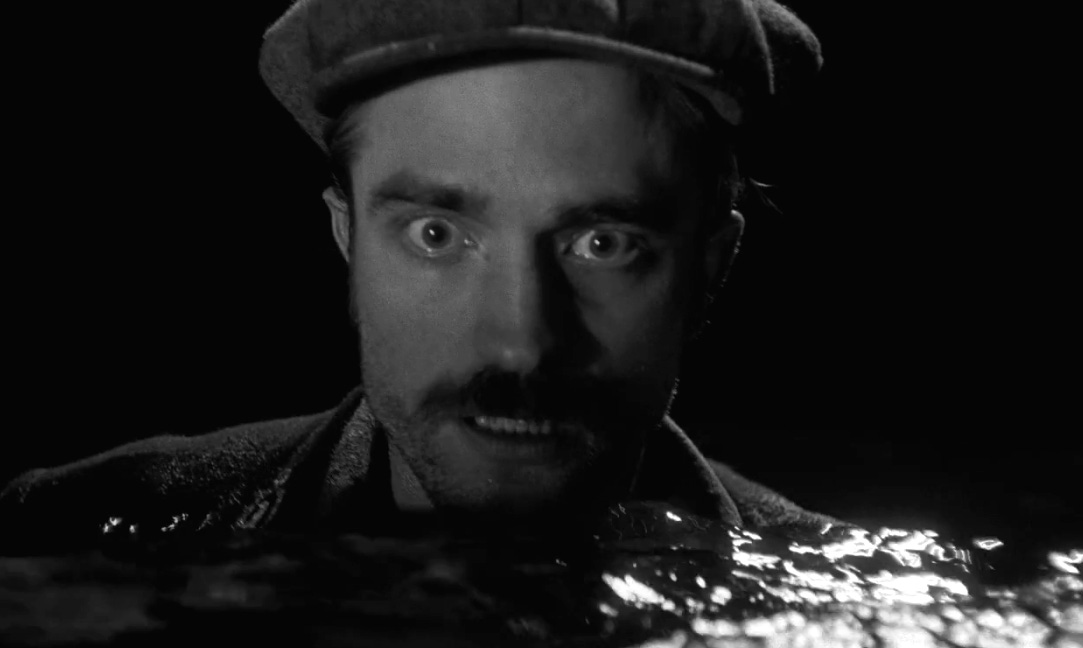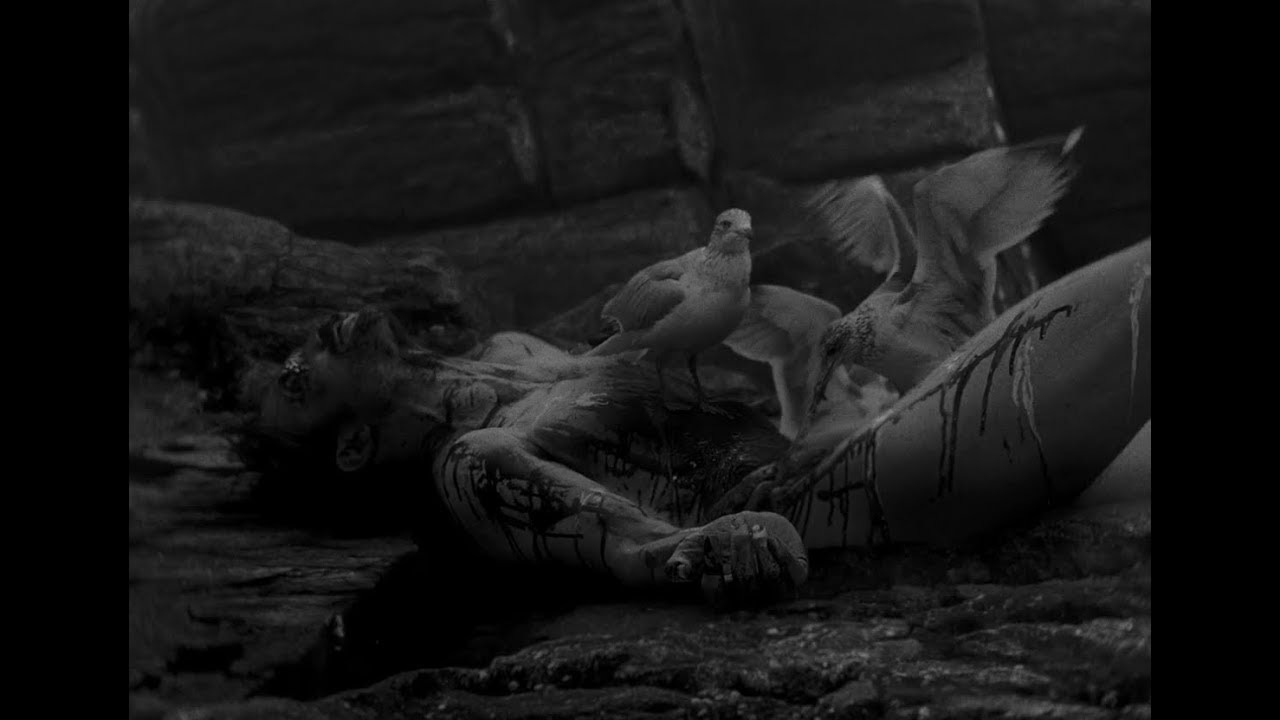The Lighthouse (2019)
Whew! Where do I begin!

My face after seeing RPatz smash that seagull
I like to think of myself as a bit of a lighthouse expert, having written a 1,500 word essay on lighthouses in literature and maritime history for a class called Oceanic Frameworks. (I'm joking. Kids, please don't believe that taking a class in college makes you an expert in anything.) However, writing that essay did make me very familiar with the symbolic tropes that Robert Eggers plays with in The Lighthouse (2019), in ways that are times a little bit too obvious.
Lighthouses, to put it simply, are both very old and very new. The earliest lighthouses were beacon fires lit on top of hills, as documented in The Iliad and The Odyssey. However, the modern lighthouse originated at the turn of the 18th century, at the time of the Industrial Revolution. Crossing the oceans is something that humans have always been doing; at the same time, the way in which those crossings change becomes a record of human history and technological progress. In “Literary Studies on the Terraqueous Globe”, Margaret Cohen sees “the maritime world [as] one of modernity’s ongoing frontiers of science and technology”, linking technological innovation at sea to parallel developments like the Industrial Revolution taking place on land.
The Lighthouse is set in the late 19th century. As such, I propose we take a look at William Longfellow's poem "The Lighthouse", written in 1847. It begins with lines that very neatly sum up the lighthouse as a symbol of the rational Enlightenment values of the Industrial Revolution, describing it as holding steady over the fearful and unknowable ocean:
Steadfast, serene, immovable, the same
Year after year, through all the silent night
Burns on forevermore that quenchless flame,
Shines on that inextinguishable light!It sees the ocean to its bosom clasp
The rocks and sea-sand with the kiss of peace;
It sees the wild winds lift it in their grasp,
And hold it up, and shake it like a fleece.
Yet at the same time, the poem expresses a certain fundamental anxiety about human triumph over nature writers were grappling with at the time. The rationality represented by the lighthouse eventually gives way to madness:
The sea-bird wheeling round it, with the din
Of wings and winds and solitary cries,
Blinded and maddened by the light within,
Dashes himself against the glare, and dies.A new Prometheus, chained upon the rock,
Still grasping in his hand the fire of Jove,
It does not hear the cry, nor heed the shock,
But hails the mariner with words of love.

Thanks for the spoilers, Longfellow.
What I am saying, to a certain extent, is that Eggers' imagery is not new. The lighthouse has always been a potent symbol both of rational knowledge and emotional hope, a beacon offering escape out of terrifying and unknown nature. As a liminal space - is it looking outwards to sea, or inwards to land? - it offers a perfect place for the two Thomases to meet, and with their respective terrestrial and maritime personal histories, to clash. Young Thomas, coming from a place far from the ocean, starts out a stickler for routine and reason. Old Thomas, like a grim prophet of the sea, eventually seduces him into madness. And of course, the sea represents madness, just as half-human half-fish women represent madness, and tentacles represent madness, and so on and so forth. I get it - it's been done before.
However, none of this makes The Lighthouse a bad film. What it does is take the rich network of associations surrounding lighthouses in the cultural imagination and evoke them beautifully. The choice to shoot in black and white - despite being another obvious metaphor for the battle of light and dark - lends every scene a weathered, ominous look. The darkness of the majority of shots, combined with the claustrophobic interior settings, effectively evokes the unknown as the viewer's eyes are forced to search for the light. The chains that appear in glimpses long before the final shot are an incredible touch, slowly dripping across the floor as if alive. As a period piece, and one originally inspired by Edgar Allen Poe - writing two years after Longfellow - the film perfectly captures the symbolism of the lighthouse and the cultural values and anxieties of the time.
I find myself most fascinated by the way the film offers a window into labour conditions of the time and their psychological impact on the individual. (I mean, it's an allegory for forbidden knowledge, but it's also a movie about workplace conflict, y'know?) Eggers manages to capture the rise of technological innovation at the time and evoke its intrusion into the life of manual labourers and the anxieties produced through his use of sound. The constant blare of the foghorn, the whirring of immense machinery - they're a reminder that a central power dynamic of the movie caused by Young Thomas being forced to power an unspeakable machine, while Old Thomas enjoys its benefits up in the light. The claustrophobia, the turn to alcoholism, the homoerotic energy caused by the lack of women - all part and parcel of a particular social reality of the 18th century, for desperate men forced to do a desperate job.
--
Other films I watched recently but didn't review: Little Women (would recommend! Feels very Christmassy. Really motivational if you're an aspiring writer. Louis Garrel as the hot prof is Everything.), Invisible City (dir. Tan Pin Pin, saw this at the Asian Film Archive)
A side note: after a brief period of post-graduation unemployment, I'm happy to be starting my first proper job at the beginning of March. Will the film reviews slow down? They can't get much slower already, but I say not!
Next up: another period piece (Portrait of A Lady on Fire (2019)) in time for Valentine's Day. Currently accepting applications for anyone who wants to either a) take me to the movies, or b) paint me like one of their French girls.



